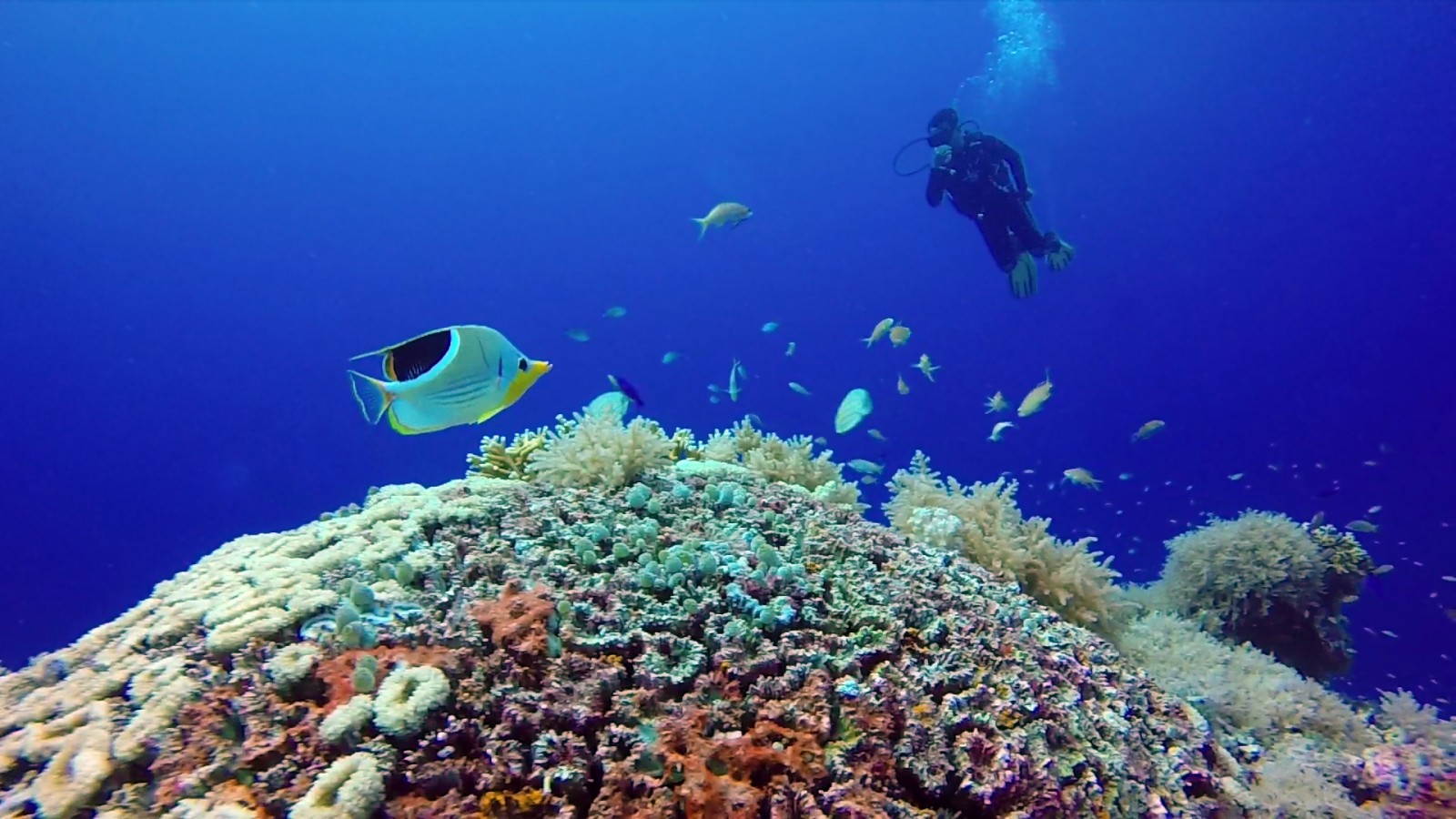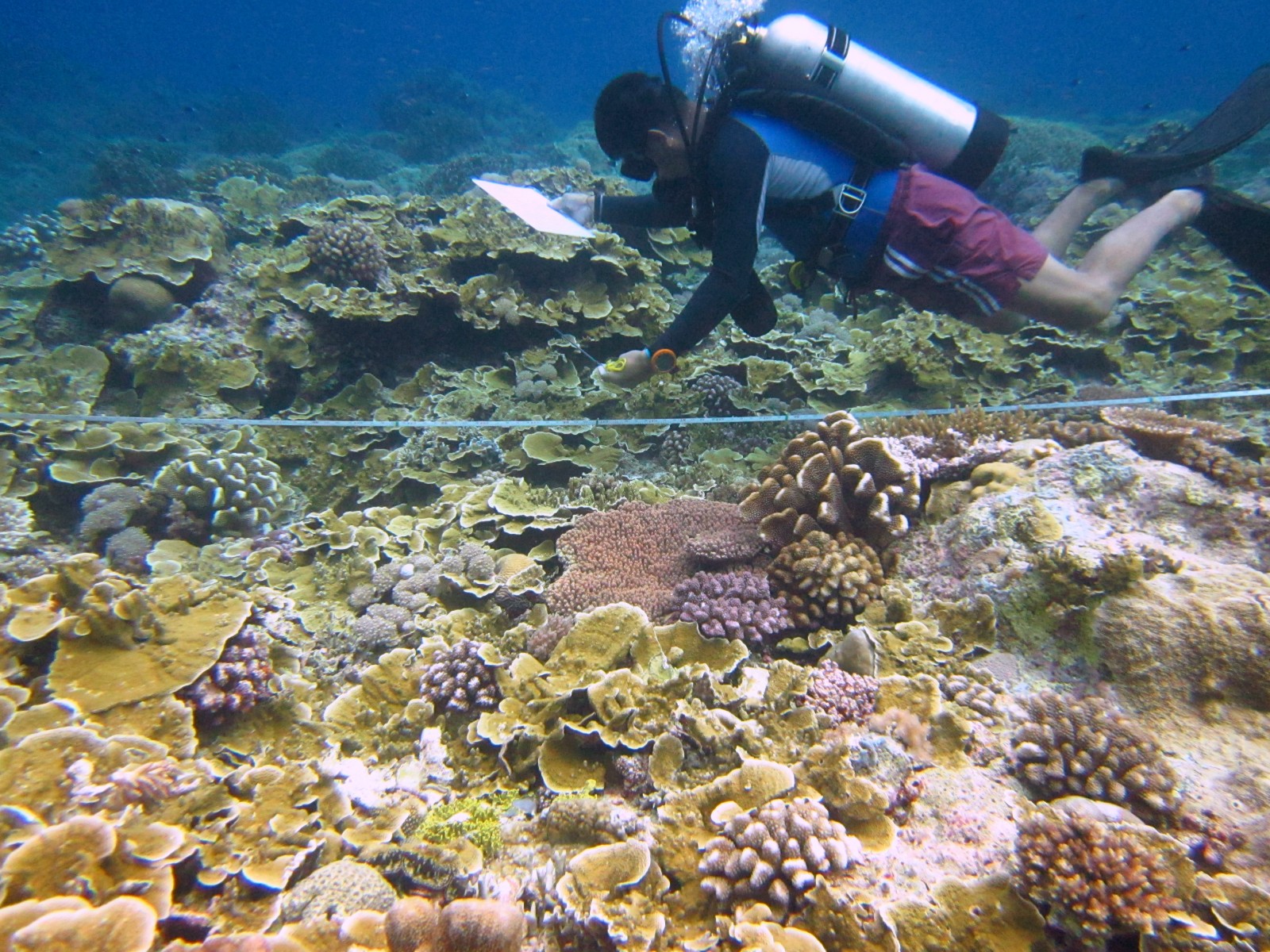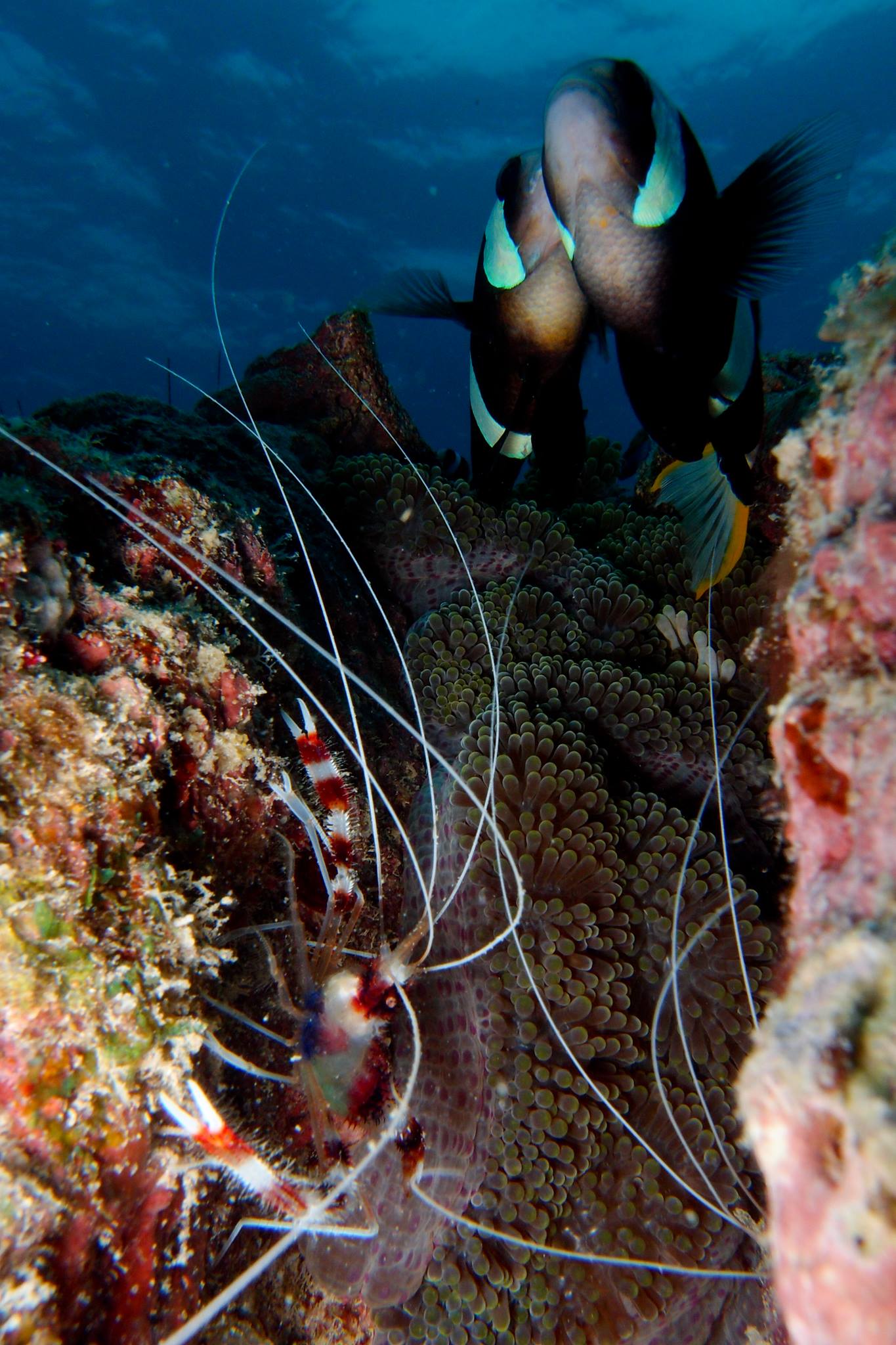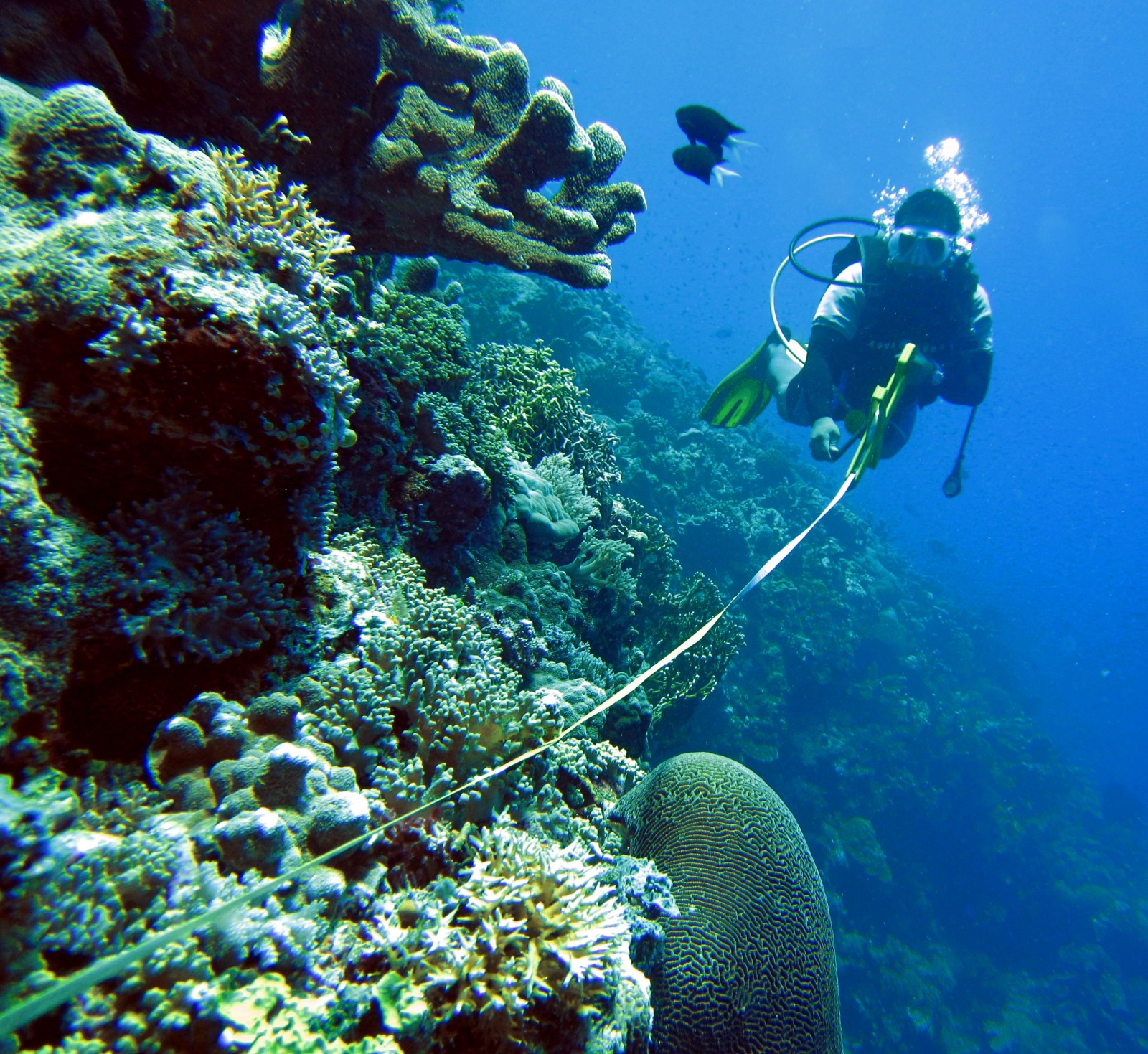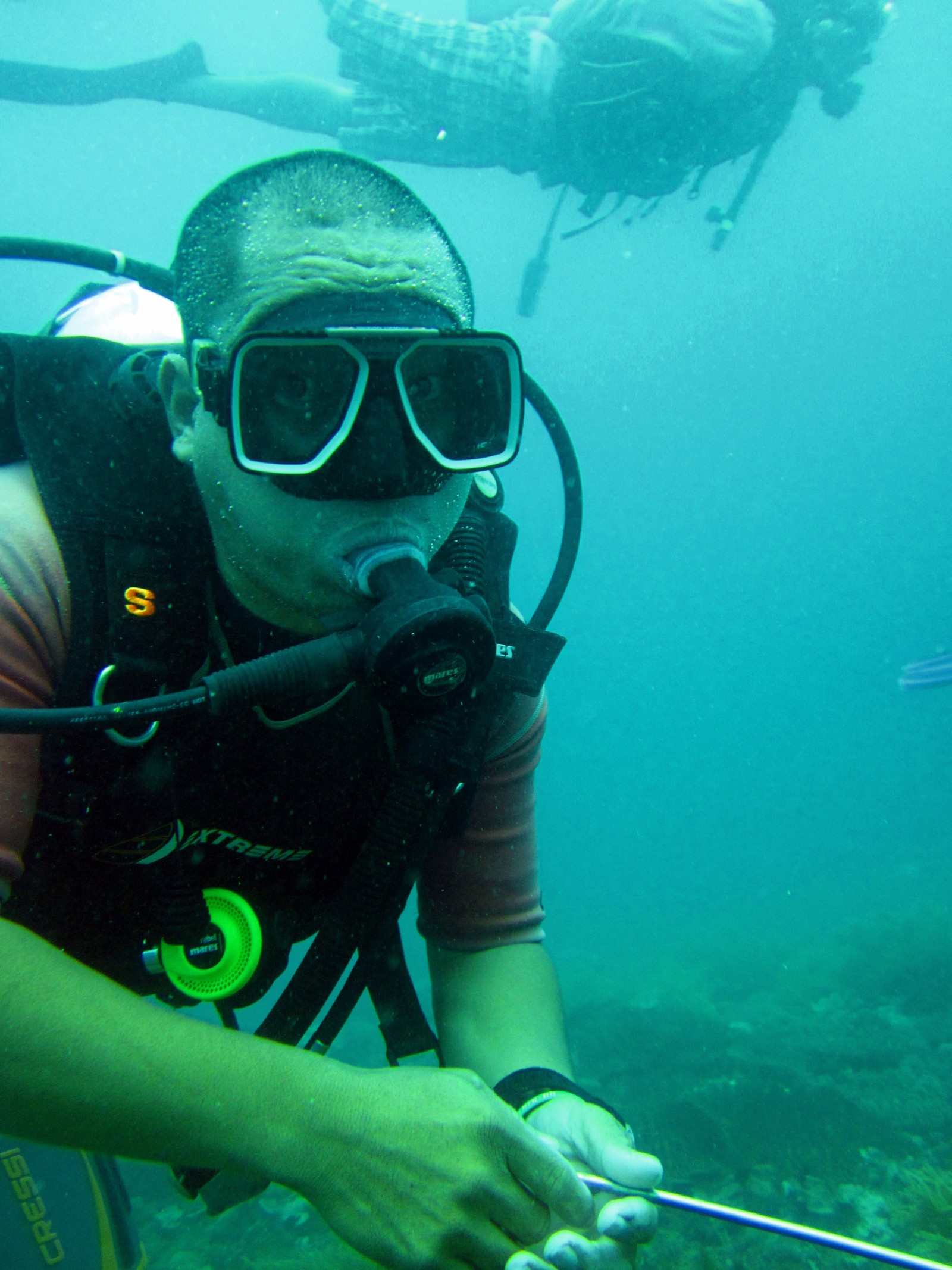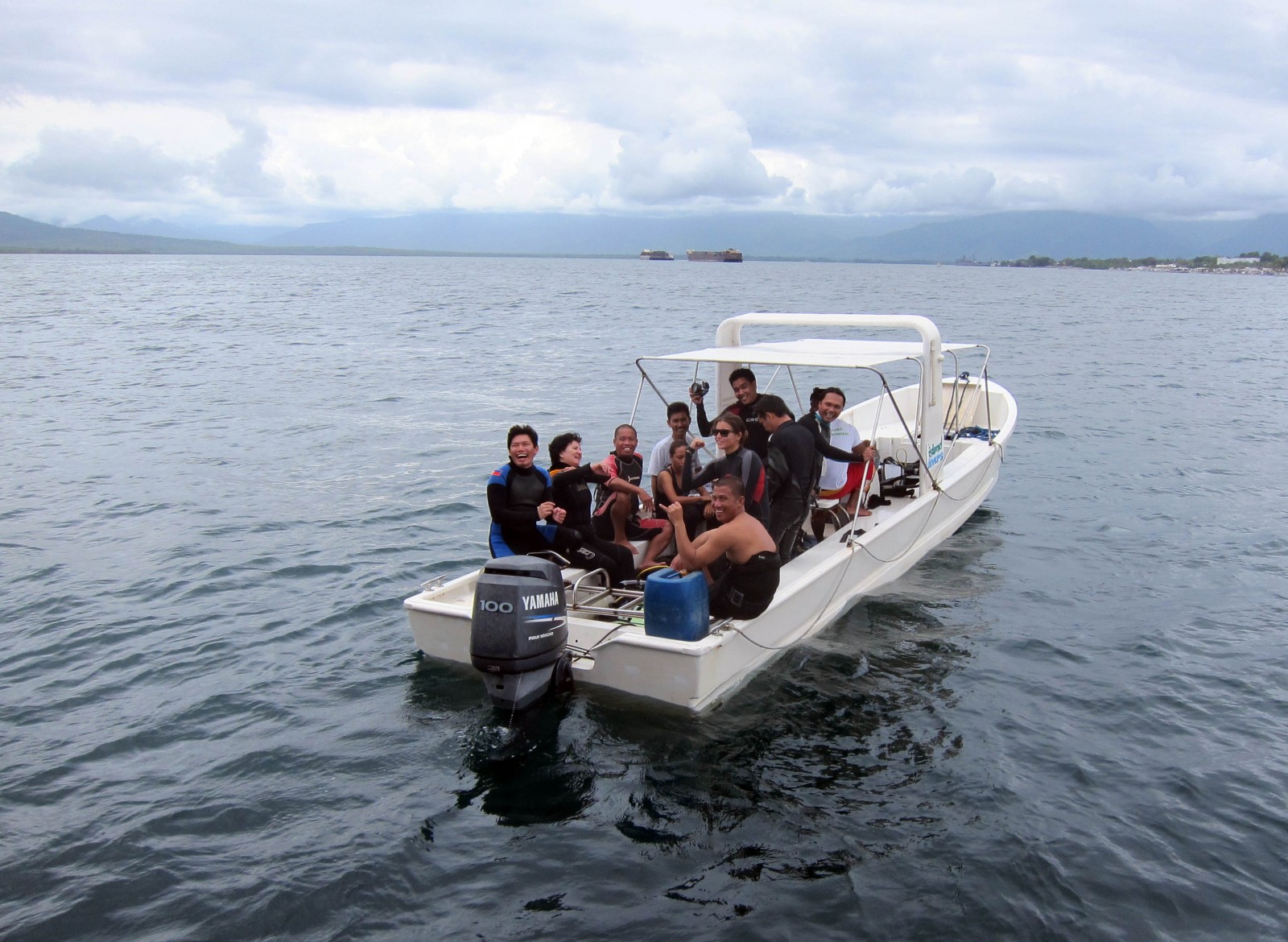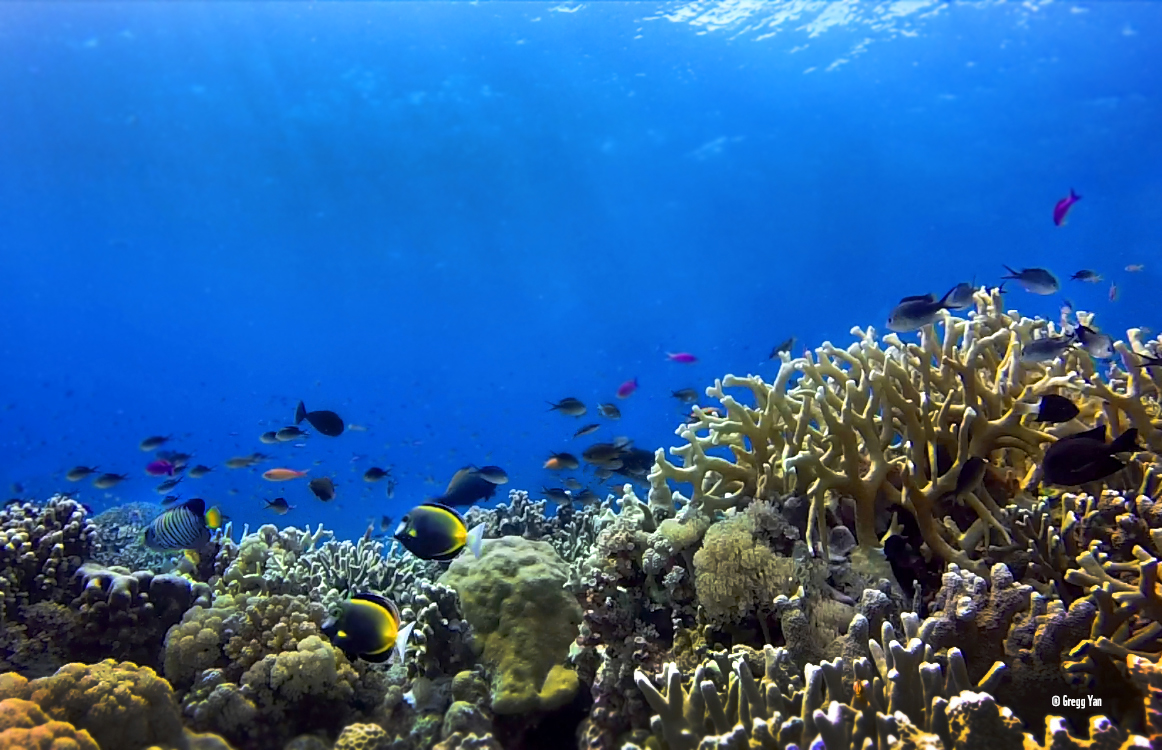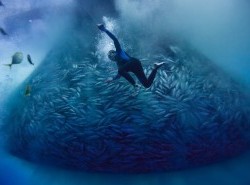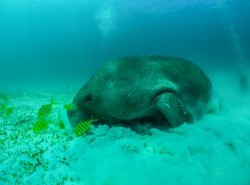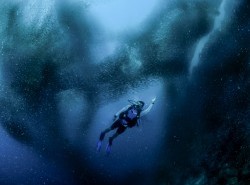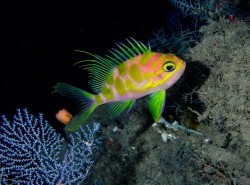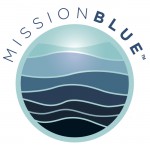Becoming a Reef Check EcoDiver brings coral reefs to life, enhancing the dive experience while supporting conservation.
Major Tom to dive control: possible target sighted!
Like astronauts surveying an alien world, we’re floating above a cool dreamscape of rocks, following a flapping plastic transect line while occasionally checking our life-support systems. Peering into a crevice, I look for telltale signs of my quarry. There! Quivering white antennae reveal two insectoid monsters with beady, stalked eyes and armored claws, ready to strike. I yawn and mark my Reef Check dive slate with two notches: banded coral shrimp, one pair.
Beside me, Jeff is busy counting fish while Manny is assessing coral cover with a heavy metal V-bar. It’s a Monday morning and we’re in Tubbataha – just another day on the job as EcoDivers.
Divers Giving Back
Global marine conservation organization Reef Check created the EcoDiver Programme, where volunteers can help scientists study reefs. Site-specific information is gathered using a standardized system. Data is then analyzed before being turned over to local reef protection agencies. The EcoDiver training course runs from three to five days and teaches divers everything they need to survey coral reefs – from identifying fish and invertebrates to classifying various types of substrate. Buoyancy, advanced finning techniques and hand signals are mastered. Various monitoring systems are used to measure the abundance of indicator critters like parrotfish, giant clams, or in my case – banded coral shrimp. It's a process that enhances the whole dive experience, bringing the reef to life with a wealth of knowledge about the ecosystems.
Reef Check pairs up divers to carefully assess four 100-meter transect lines spaced five meters apart. To see how reefs are faring year-on-year, sites are surveyed from one to four times annually. “Candidates must both pass written and field tests before being awarded Reef Check EcoDiver status and their EcoDiver kits, which include dive slates, weights, notes and identification cards,” explains Reef Check Philippines President Jeannie Tan. I found out the hard way that EcoDivers must have perfect buoyancy, because writing notes on a slate while looking for fish or invertebrates (sometimes while upside down) while buffeted by a strong current can be pretty tough.
Good thing I’m with the veteran divers of the Tubbataha Management Office (TMO), pros who surveyed the grounding scars wrought on Tubbataha by a Chinese and an American ship back in 2013. The rangers are so tough that one of them ripped off his mask at 40 feet, found a piece of seaweed, scrubbed the inside of his lens, put his mask back on, then asked me to do the same. I grinned and pretended to be busy with my slate.
Extra Fins Needed
Two hours later we’re back on the M/Y Navorca, WWF’s research vessel in the Philippines. Over steaming mugs of instant brew, we’re encoding data scribbled on our slates, still dripping with seawater. Like holy tablets, the slates reveal good news. The divers are recording more and more indicator species.
From 2004 to 2005, Tubbataha doubled its fish biomass from 166 to 318 metric tonnes per square kilometer – due largely to good management and vigorous law enforcement. Protected by the Tubbataha Management Office and supported by top Philippine airline Cebu Pacific, Tubbataha can continue seeding the region with legions of fish and invertebrates – all the better to keep future Reef Check EcoDivers busy!
Though our morning dive was done, the fight is far from won. Reef Check needs brave volunteers to dive in and give back – before pollution, siltation and climate change transform reefs into rubble. “Coral reefs can recover from climate change effects and human disturbance given enough time,” concludes Jeannie. “But we need extra fins to ‘check’ how they’re faring. That’s why we need YOU to protect our sunken playgrounds!”
You can find out more about becoming a Reef Check ecodiver in locations across the triangle by visiting their website. Or contact ecodiver@reefcheck.org to start your journey as an EcoDiver today!
